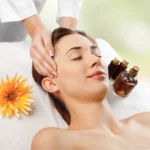After receiving a massage, it can be difficult to know what to do next to ensure the best possible recovery. Fortunately, there are a few essential tips you can follow to enhance your recovery after a massage. In this article, we will discuss “What to Do After a Massage: Essential Tips to Enhance Your Recovery”. We will provide advice on how to properly care for your body after a massage, including tips on hydration, nutrition, and rest. We will also provide some additional recommendations to help you maximize the benefits of your massage.
Benefits of Massage
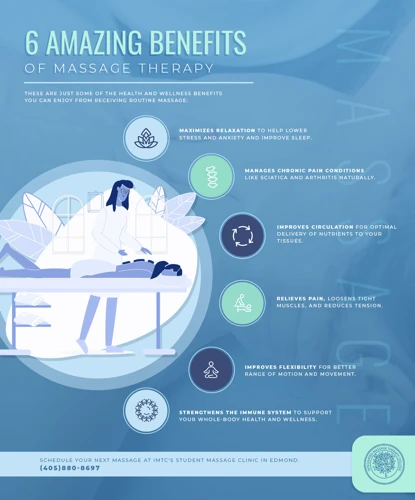
- Reduces Stress – Massage is known to relax muscles and reduce stress levels.
- Improves Circulation – Massage helps to increase circulation throughout the body.
- Relieves Pain – Massage can help to reduce pain, particularly after strenuous exercise or activities, and can help to reduce inflammation.
- Increases Flexibility – Massage can help to improve joint flexibility and range of motion.
- Promotes Healing – Massage can help to speed up the healing process after injuries.
Massage is an excellent way to relax and reduce stress, improve circulation, and help to relieve pain and promote healing. With regular massage, you can enjoy the many benefits it has to offer, including improved flexibility and range of motion, and even a reduction in pain after strenuous activities. Massage can also be used to help relieve pain after massage, making it an essential part of any post-massage recovery plan.
What to Do After a Massage
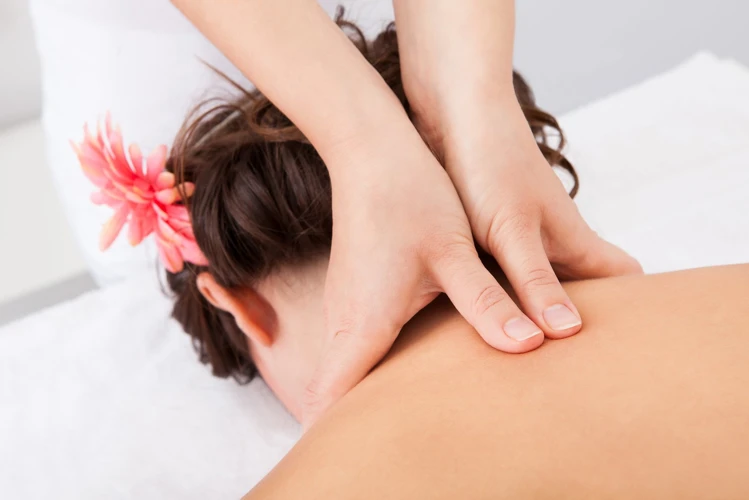
Avoid Alcohol
Alcohol consumption can impede the body’s recovery process after a massage. It can also interfere with the massage therapist’s work, as alcohol can relax the muscles too much, making it difficult to provide the desired deep tissue massage. Why does a deep tissue massage hurt? Alcohol can increase the pain levels associated with this type of massage.
Stay Hydrated
It is essential to drink plenty of fluids after a massage to help flush away toxins that have been released from the muscles during the massage. This will also help to reduce soreness and aid in a faster recovery.
Eat a Nutritious Meal
Eating a healthy, balanced meal shortly after a massage can help to replenish the body’s energy levels and aid in muscle recovery. It is best to stick to fresh, whole foods that are low on sugar and high in protein.
Light Exercise
Light exercise can help to improve circulation and aid in the body’s recovery process. The best type of exercise to do after a massage is low-impact stretching or yoga.
Take a Warm Bath
Taking a warm bath can help to further relax the muscles and reduce soreness. Adding Epsom salts to a warm bath can also help to reduce inflammation and aid in the healing process.
Use Ice Packs
Using an ice pack on the affected area can help to reduce inflammation and soreness. It is important to note that ice should not be used directly on the skin, as it can cause tissue damage.
Stretch
Stretching can help to reduce tension and aid in muscle recovery. It is important to stretch slowly and gently, as overstretching can cause injury.
How to Relieve Pain After Massage
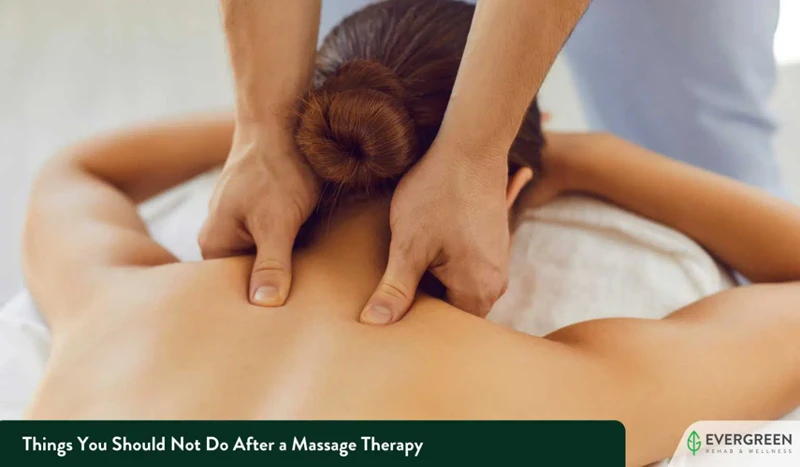
Take a Warm Bath
A warm bath can be a great way to help relax sore muscles after a massage. The heat of the water can help improve circulation and reduce inflammation. Add Epsom salt to the bath to further help to relax the muscles.
Use Ice Packs
Ice packs can be used to relieve soreness and inflammation in the muscles after a massage. Place the pack on the affected area for 10-15 minutes. Do not apply ice directly to the skin, but wrap it in a towel instead.
Take Pain Medication
Over-the-counter pain medications such as ibuprofen or acetaminophen can help to reduce pain and inflammation after a massage. Make sure to follow the directions on the bottle and speak to a doctor before taking any medication.
Do Gentle Exercise
Gentle exercise such as walking, stretching, and yoga can help to relieve soreness after a massage. Exercise can help to improve circulation and promote healing. Avoid strenuous activities that could aggravate the sore muscles.
If you’re feeling sore after a massage, don’t be alarmed. It’s common to experience mild soreness and discomfort after a massage, especially if you haven’t had one in a while. Knowing how to properly take care of your body after a massage can help to reduce soreness and improve your recovery.
Why Does a Deep Tissue Massage Hurt?
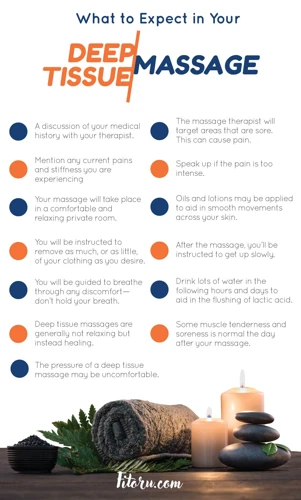
Deep tissue massage is a type of massage technique that focuses on the deeper layers of muscle and connective tissue. It involves applying sustained pressure using slow, deep strokes to target the inner layers of your muscles and connective tissues. This type of massage can be both therapeutic and relaxing; however, some people may experience discomfort during and after the massage. This is usually caused by the therapist applying too much pressure, or by the body not being used to the deeper massage techniques. To avoid this, it is important to communicate with your therapist and let them know if you are feeling uncomfortable during the massage. Additionally, it is important to avoid any strenuous activity or engaging in any post-massage treatments that could further strain your muscles.
Why Am I So Sore After a Massage?
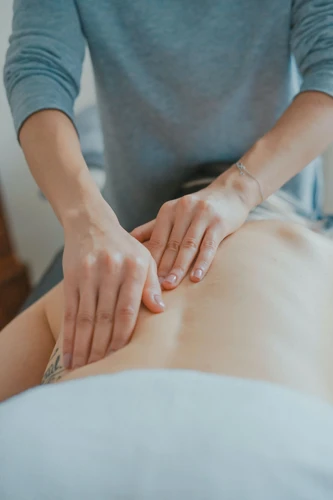
Massage therapy is a great way to relax, reduce stress, and improve your overall health. However, it is normal to feel soreness after your session. This is especially true if you had a deep tissue massage, which can cause short-term soreness due to the pressure applied to muscle tissue.
What happens after a deep tissue massage? During the massage, the therapist applies pressure to your deeper muscle tissue and joints, which can cause the muscles to become tight and sore. This soreness is a result of the release of toxins and metabolic waste that has been built up in the area.
In order to reduce soreness and discomfort after a massage, it is important to drink plenty of water. The water helps flush out toxins and metabolic waste, which can reduce soreness and improve your recovery time. Additionally, it is important to take it easy after a massage and avoid strenuous activities that can strain your muscles. Taking a warm bath or applying a hot or cold compress can also help reduce soreness and discomfort.
Finally, getting enough rest is essential to recovery. Resting allows your body to repair and heal, which can reduce soreness and help you to recover more quickly. Eating nutritious foods and staying hydrated can also help in your recovery process.
| Action | Benefits |
|---|---|
| Drink plenty of water | Flushes out toxins and metabolic waste |
| Take it easy after the massage | Avoids straining your muscles |
| Apply hot/cold compress | Reduces soreness and discomfort |
| Get enough rest | Allows your body to repair and heal |
| Eat nutritious foods | Helps in the recovery process |
| Stay hydrated | Helps in the recovery process |
By following these tips, you can reduce soreness and discomfort after your massage and improve your overall recovery.
What Not to Do After a Massage
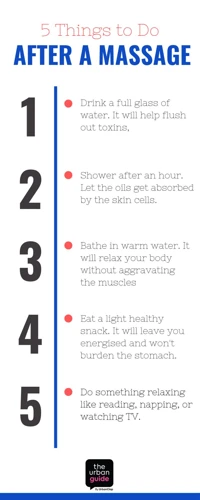
Avoid Alcohol
Drinking alcohol after a massage can have detrimental effects on your body. It can interfere with the detoxification process your body is undergoing, and can hinder muscle repair and recovery. If you have had a Thai massage, it is advised to especially avoid alcohol.
Don’t Take Hot Baths
Hot baths can feel very relaxing after a massage, however they can be detrimental to the healing process. Hot baths can increase the heart rate and blood pressure, which can counteract the effects of the massage.
Avoid High-intensity Exercise
High-intensity exercise can be counter-productive after a massage. It can be too strenuous for the body, and can increase inflammation. Instead, opt for gentle exercise such as walking or stretching.
What Happens After a Deep Tissue Massage?

After a deep tissue massage, you may experience some soreness and stiffness in the areas that were treated. This is normal and a sign that the deep tissue massage was effective. Your body is healing and repairing itself, and that can lead to some discomfort. To help your body recover, it’s important to drink plenty of water and keep your body hydrated. Additionally, you may find that it helps to take a warm bath or shower, or to apply heat or ice to the areas that were treated.
You should also avoid any strenuous activities or heavy lifting after a deep tissue massage. These activities can strain the muscles that were treated and interfere with the healing process. Resting is the best way to allow your body to recover, and you should avoid strenuous activities for at least 24 hours after a deep tissue massage.
It’s also common to feel sore the day after a massage. This is due to the body releasing toxins and lactic acid from the muscles. Drinking lots of water and taking it easy for the day can help your body to recover more quickly.
| Activity | After Deep Tissue Massage |
|---|---|
| Drink Water | Yes |
| Warm Bath or Shower | Yes |
| Heat or Ice | Yes |
| Strenuous Activities | No |
| Heavy Lifting | No |
| Sore the Day After | Yes |
What to Do After Thai Massage
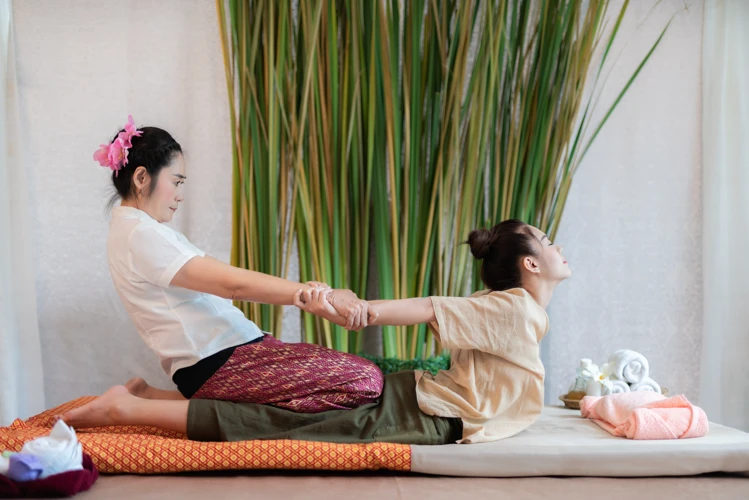
Drink Plenty of Water
Hydrate your body after a massage to help flush out toxins and replenish fluids in your tissues. Drink plenty of water over the next 24 hours to help your body heal and recover.
Eat Light Meals
Consume light and nutritious meals to help you recover. Avoid overly heavy meals and processed foods which can slow down your body’s healing and recovery process.
Do Light Exercise
Light exercise helps to promote circulation and increase muscle flexibility. Avoid heavy physical activity as your body needs time to rest and recover.
Avoid Alcohol
Alcohol consumption should be avoided as it can interfere with your body’s natural healing process. Stick to water and natural juices that contain electrolytes.
Why Am I Sore The Day After a Massage?
It is not unusual to experience some soreness or discomfort the day after a massage. This is especially true after a deep tissue or sports massage. While it is common to feel a bit achy, it is important to understand why this is happening so that you can take the necessary steps to properly recover after a massage.
What to Do After a Massage: Essential Tips to Enhance Your Recovery
- Drink Plenty of Water: After a massage, it is essential to stay hydrated. Water helps flush out toxins that have been released during the massage, while also providing the body with the hydration it needs to recover.
- Engage in Light Exercise: Going for a walk or doing some low-impact exercise is a great way to help your body recover after a massage. This will help to stretch the muscles and joints, while also promoting better circulation.
- Ease Back into Normal Activities: If you are feeling sore or achy the day after a massage, take it easy and avoid any strenuous activities. Stick to light activities and gradually increase your activity level as your body starts to feel better.
- Take a Hot Bath: Taking a hot bath after a massage can do wonders for sore muscles. The hot water helps to soothe and relax the muscles, while also providing relief from any soreness or discomfort.
- Apply Heat: Applying heat to the sore muscles can provide relief from any aches and pains. You can use a heating pad, hot water bottle, or even a warm compress to help reduce soreness.
- Avoid Alcohol: It is important to avoid drinking alcohol after a massage, as it can interfere with the body’s natural healing process. Alcohol can also lead to dehydration, which can make any soreness and discomfort worse.
By following these tips, you can help to reduce any soreness and discomfort that may occur after a massage. Remember, it is normal to feel a bit sore the day after a massage, but it should never be too painful. If you experience any excessive soreness or pain, it is important to speak to your massage therapist or doctor.
Frequently Asked Questions
Is it advisable to take a shower after a massage?
Yes, taking a shower after a massage is highly advisable. Here are some reasons why:
- It helps to clean away sweat, oils, and lotions used during the massage.
- It can help to reduce soreness and muscle tension.
- It can help to restore the body’s natural balance.
- It can help to improve the effectiveness of the massage.
- It can help to wash away any dirt, debris, and bacteria that may have been transferred during the massage.
It is important to take a shower after a massage to ensure that the skin is thoroughly cleansed and to help the body restore its natural balance. It is also important to note that it is not recommended to take a hot shower immediately after a massage as this can cause the muscles to become more tense. A lukewarm shower is preferable. Additionally, it is important to use a mild soap and to avoid any harsh scrubbing so as to not irritate the skin.
What Should I Do if I Feel Sore After a Massage?
Rest: It is important to give your body time to rest and recover after a massage. Allow at least 24 hours of rest before engaging in any strenuous physical activity.
Drink Water: Drinking plenty of water helps to flush out toxins released during the massage. Make sure to drink plenty of fluids before, during, and after your massage.
Heat or Cold Packs: If you are feeling sore after a massage, you can try using a hot or cold compress to relieve the pain. Heat helps to relax the muscles, while cold helps to reduce inflammation.
Stretching: Gentle stretching can help to reduce the soreness from a massage. Focus on stretching the areas that feel the most tight or uncomfortable.
Epsom Salt Bath: Taking a warm Epsom salt bath helps to relax the muscles, reduce inflammation, and ease soreness.
Essential Oils: Certain essential oils can be used to reduce soreness and inflammation. Try adding a few drops of lavender, peppermint, or eucalyptus oil to a hot bath or applying directly to the skin.
Is it ok to exercise after a massage?
It is generally recommended to wait at least 24 hours after a massage before engaging in strenuous physical activity. Exercising too soon after a massage can increase soreness, as the muscles are still in a state of recovery. However, light activities such as walking or stretching can be beneficial to help ease the body back into movement. To ensure your body has recovered after a massage, follow these essential tips for enhanced recovery:
- Give yourself time to rest. It is important to allow your body to rest and recover after a massage. Make sure to take some time off from physical activities to avoid further straining your muscles.
- Drink plenty of water. Drinking water helps to flush out toxins from the body and prevent dehydration. It is important to stay hydrated after a massage to ensure your body is functioning optimally.
- Avoid alcohol and processed foods. Consuming alcohol and processed foods can impede the recovery process, as they can cause inflammation and stress on the body. It is best to stick with healthy, nutrient-rich foods to help your body recover.
- Engage in light activities. After 24 hours, light activities such as walking or stretching can help to ease your body back into movement and improve circulation. However, it is important to avoid strenuous activities until your body has fully recovered.
By following these essential tips, you can ensure your body has recovered and is ready for exercise after a massage.
Is There a Recommended Time Frame to Wait Before Drinking Alcohol After a Massage?
Alcohol consumption should be avoided after a massage session. It can reduce the beneficial effects of a massage, as it can dehydrate the body and have a negative impact on circulation. Here are a few essential tips to consider:
- Wait 24 Hours: Give your body at least 24 hours to fully benefit from the massage. This will give your body enough time to recover and fully benefit from the massage.
- Drink Plenty of Water: Drinking plenty of water before and after a massage can help flush out any toxins released during the massage session.
- Avoid Heavy Meals: Eating a large, heavy meal right after a massage can cause your body to become sluggish and can interfere with your body’s natural healing process.
- Avoid Caffeine & Alcohol: Both caffeine and alcohol can dehydrate the body and can interfere with the massage’s beneficial effects.
Should I Drink Extra Water After a Massage?
Yes, it is important to drink plenty of water after a massage. Drinking water helps to flush out toxins released from your muscles during the massage and can help reduce muscle soreness. Additionally, drinking water can help to replenish any fluids you may have lost during the massage. It is recommended to drink at least 8 glasses of water each day to keep your body hydrated and functioning optimally.
Conclusion
Taking time to rest and relax after a massage is essential for muscle recovery and improved overall health. Drinking plenty of water, avoiding strenuous activities and nourishing your body with nutrient-rich foods can help your body restore balance and reap the full benefits of your massage. Furthermore, paying attention to your body’s signals and symptoms can help you determine if you need further medical attention. Following these post-massage tips will help you enhance your massage experience and ensure optimal recovery.
References
- Post Massage Care: What to Do After a Massage
- What to Do After a Massage: Benefits, Recovery Time, and More




